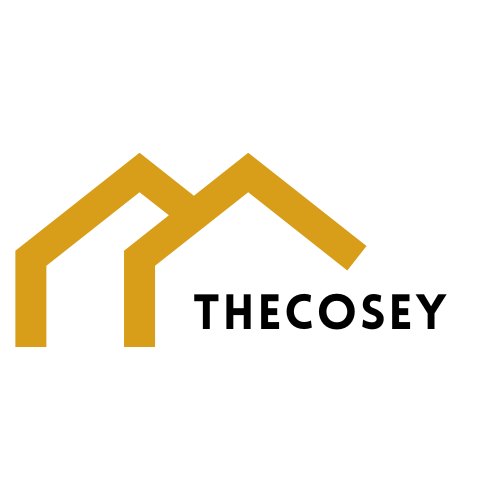Table of Contents
ToggleImagine living in your dream home while someone else pays your mortgage. Sounds like a fantasy, right? Welcome to the world of house hacking! This clever real estate strategy allows homeowners to generate income by renting out a portion of their property. Whether it’s a spare room, a basement apartment, or even a charming tiny house in the backyard, house hacking turns your living space into a money-making machine.
What Is House Hacking In Real Estate
House hacking refers to a real estate strategy that allows individuals to generate rental income from their properties. Homeowners can accomplish this by renting out a portion of their living space while still residing in the home. Consider utilizing spare rooms, basement apartments, or even detached units, such as tiny houses in the backyard.
This approach leads to reduced monthly mortgage payments. It provides financial relief, enabling homeowners to enjoy their dream homes without burdening their finances. Additionally, house hacking promotes a sense of community among tenants and homeowners. This leads to shared responsibilities and enhances the living experience for everyone involved.
Investors often find house hacking appealing due to its dual benefits of enhanced cash flow and the potential for property appreciation. When the rental income consistently exceeds expenses, homeowners can use the surplus to save, invest, or reinvest in further properties. They leverage this strategy to accelerate wealth-building and stabilize their financial future.
Specific types of house hacking vary widely. Multifamily properties allow owners to inhabit one unit while renting out the others. Others may opt for Airbnbs or vacation rentals alongside their primary residence. Regardless of the method, each form fosters an opportunity to monetize unused property space effectively.
House hacking embodies a practical approach to how homeowners and investors can navigate the housing market. Knowledge of local rental laws and understanding tenant management principles becomes crucial. This strategy can lead to successful long-term investments when implemented thoughtfully and strategically.
Benefits Of House Hacking


House hacking offers numerous advantages for homeowners and investors. This strategy not only provides financial relief but also supports long-term wealth building.
Financial Freedom
Increased cash flow results from renting out part of the property. Homeowners can apply this income toward their mortgage, reducing monthly payments significantly. Tax deductions on rental income add another layer of financial benefit. Some investors report savings in the range of $1,000 to $3,000 per year through house hacking. Achieving financial independence becomes more attainable as the rental income covers living expenses, allowing for savings and investment opportunities. Overall, house hacking improves budget flexibility and provides a pathway to financial freedom.
Building Equity
Equity in a home grows faster with house hacking. Rent payments contribute directly to the mortgage, allowing homeowners to pay down their principal balance efficiently. As the property value appreciates, equity builds even more, enhancing financial security. Investors often experience an increase in property value of around 3% to 5% annually. Building equity enables homeowners to leverage their investment for future projects or upgrades. Additional rental income also affords homeowners the chance to reinvest in their property, further increasing its value over time. House hacking ultimately helps in constructing a solid financial foundation for years to come.
Types Of House Hacking
House hacking encompasses various strategies that enable homeowners to maximize their property’s income potential. The following methods showcase how individuals can effectively leverage their living spaces.
Renting Out Rooms
Renting out individual rooms represents a popular house hacking method. Homeowners can create comfortable living spaces for renters, generating significant monthly income. This practice often appeals to students and young professionals seeking affordable housing options. Property owners typically benefit from reduced mortgage payments and increased cash flow. Ensuring ample privacy and common areas contributes to a positive living environment for both homeowners and tenants. Setting reasonable rent prices attracts potential tenants while maintaining appealing living conditions.
Multi-Family Properties
Investing in multi-family properties offers another efficient house hacking approach. Homeowners can occupy one unit while renting out the remaining units to tenants. This strategy not only provides steady rental income but also allows owners to offset mortgage payments effectively. Many investors appreciate the added advantage of increased property appreciation due to multiple revenue streams. Understanding local rental regulations and market conditions is crucial for maximizing returns. Managing tenants involves clear communication and property upkeep, ensuring a harmonious living situation for all parties involved.
How To Get Started With House Hacking
Getting started with house hacking involves strategic planning and understanding local market conditions. Homeowners should focus on a few key areas to set themselves up for success.
Finding The Right Property
Finding the right property hinges on location and property type. Look for homes in neighborhoods with strong rental demand, such as those near colleges or business districts. Properties with separate entrances or existing rental units offer added flexibility. Consider multifamily properties that enable owners to live in one unit while renting out others. Evaluate the potential for appreciation and the condition of the property to avoid costly repairs later. Connecting with local real estate agents can provide valuable insights into the best opportunities in the area.
Understanding Rental Agreements
Understanding rental agreements is essential for successful house hacking. Clarifying terms and conditions in writing protects both owners and tenants. Lease agreements should outline rent amounts, payment due dates, and responsibilities for maintenance. Familiarize yourself with local tenant laws to ensure compliance and avoid misunderstandings. Setting clear expectations with tenants fosters a positive living situation and builds trust. Regular communication about issues or changes strengthens relationships, leading to smoother interactions. Each of these elements contributes to a successful venture into house hacking and rental management.
Potential Challenges Of House Hacking
House hacking offers numerous advantages, but it also presents specific challenges that homeowners and investors must navigate.
Managing Tenants
Effective tenant management is crucial for a successful house hacking experience. Clear communication establishes expectations and fosters healthy relationships. Additionally, screening potential tenants helps find reliable individuals, reducing the likelihood of late payments or property damage. Setting rental guidelines in writing ensures everyone understands terms and responsibilities. Regular check-ins can address any concerns, promoting a harmonious living situation. Local laws regarding tenant rights must also be understood to prevent legal issues.
Financial Risks
Financial risks are inherent in house hacking endeavors. Property expenses can exceed rental income, especially during vacancies. Unexpected repairs or maintenance costs can arise unexpectedly, impacting cash flow. Tax implications are another factor; homeowners should consult a tax professional to understand deductions related to rental income. Insurance costs may increase with tenants in the property, adding to monthly expenses. Thorough financial planning can mitigate these risks, ensuring sustainable profitability.







